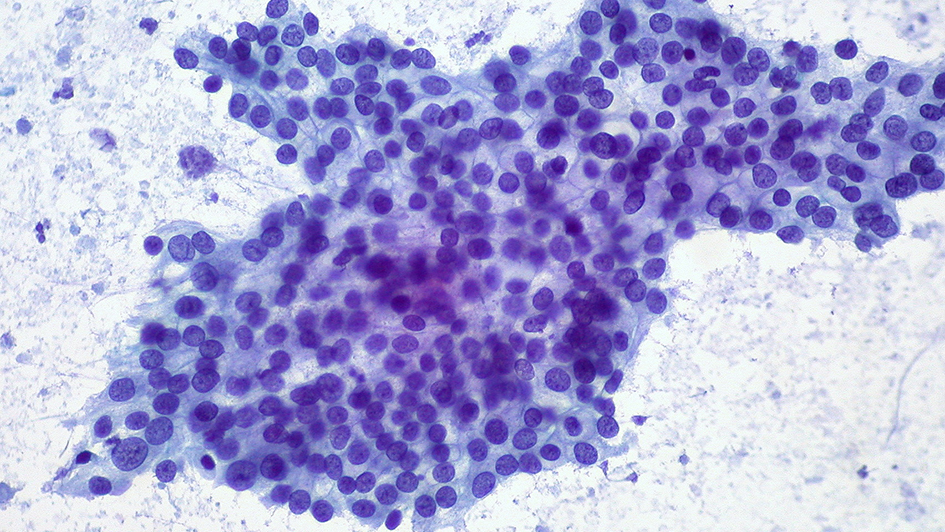
Adenocarcinoma of pancreas (photo: Ed Uthman CC-BY-2.0 via Wikimedia Commons)
We read about new treatments for cancer nearly every single day. And that is partly because, of all the diseases, ‘cancer’ has had more new drugs approved over the last two decades than any other.
This might lead you to think that most people survive the disease – either living with it long term or even being cured.
But cancer isn’t just one disease, and patients with different types can have wildly different outcomes. Some 78% of women who develop breast cancer will survive at least 10 years after diagnosis, yet the equivalent figure for pancreatic cancer is less than 1%, with no improvement in four decades.
What’s the problem?
There are various reasons why pancreatic cancer is so difficult to treat.
It is usually diagnosed late, when the cancer is more advanced, because the early stages often don’t show any obvious symptoms.
Once the cancer has spread to the surrounding blood vessels, or to nearby organs, it can’t be removed by surgery. Chemotherapy and radiotherapy can be given to slow the growth of the tumour and relieve symptoms, but in many cases the tumour becomes resistant to treatment.
There are many new ‘targeted’ treatments being developed for other cancer types – drugs that target a particular weakness in the cancer cell that isn’t present in healthy cells in the body. For example, new drugs called PARP inhibitors can be used to specifically target tumours with BRCA gene mutations and other defects in DNA repair.
But there are no targeted treatments approved for pancreatic cancer.
Working together to improve survival
The latest approach to treating cancer is called precision medicine, where doctors look at the characteristics of an individual patient’s tumour so that they can work out what treatment is most likely to kill their cancer cells.
A new initiative called PRECISION-Panc has now been set up – involving multiple centres across the UK, with funding from Cancer Research UK and other charities – to bring pancreatic cancer treatment in line with that of other cancers.
Dr Chris Lord, Leader of the Gene Function Team here at The Institute of Cancer Research in London, is part of the programme. He said: “My team will look to identify the critical genes and proteins that pancreatic cancers rely upon to survive. These findings will then be used to develop new ways of treating the disease likely to be effective for each individual patient.”
It can take a long time before patients see benefit from breakthroughs in the laboratory, but PRECISION-Panc will aim to ensure discoveries from the lab rapidly reach patients, and that data from clinical trials feed back into research of the disease.
Dr Lord said: “We hope that this initiative will speed up the time it takes from making an initial discovery in the lab to a new treatment approach being available for patients with pancreatic cancer. Only by working in a group such as PRECISION-Panc can we speed this process up and improve the prospects for people who are diagnosed with the disease.”
Maybe it won’t be too long before we are reading about advances in pancreatic cancer to sit aside those in the better-known cancer types.
comments powered by